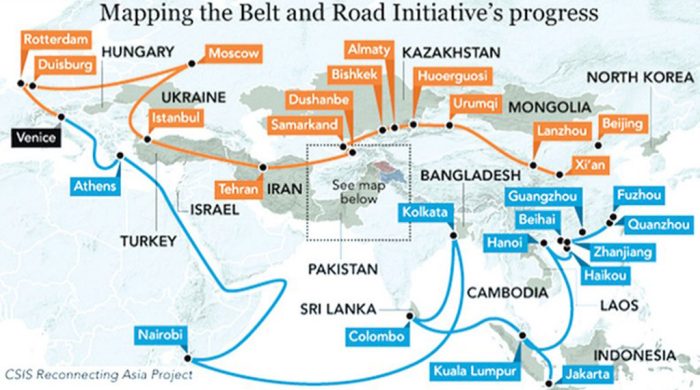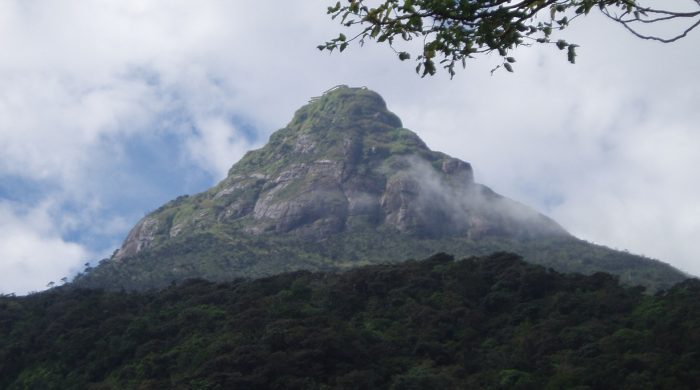The student daring to challenge Thailand’s monarchy

- Update Time : Thursday, September 17, 2020
- 173 Time View

“There was fear lurking inside me, deep fear of the consequences,” says Panusaya Sithijirawattanakul.
In August, the 21-year-old nervously stepped onto a stage in Thailand and delivered an open challenge to the monarchy.
To the cheering of thousands of students of one of Thailand’s top universities, she read out a now-famous 10-point manifesto, calling for reform of the monarchy.
It was a shocking move. Thais are taught from birth to revere and love the monarchy, but also to fear the consequences of speaking about it.
‘Life would never be the same’
Thailand is one of the few countries with a lese majeste law. Anyone criticising the king, the queen, the heir-apparent or the regent could be jailed for up to 15 years.
But in the past few months, pro-democracy protests have swept the country, and students like Panusaya are at the heart of it.
“I knew my life would never be the same,” she later told BBC News Thai.
Panusaya had been shown the manifesto just hours before she read it out at a rare large protest in the capital, Bangkok. It called for a monarchy accountable to the elected institutions, a proposal to trim the royal budget and for the monarchy to refrain from interfering in politics – shocking statements to most Thais.
“They passed it to me, asked me if I wished to use it. At that point, everyone felt the content was extraordinarily strong and I too thought it was very strong. I decided to be that person who says it.
“I held hands with my fellow students, asking aloud whether we were doing the right thing here,” Panusaya says.
“The answer was yes – it’s the right thing to do. I then sat down again, smoked a cigarette before I went on stage and let everything in my head out.”
From the stage, she told the crowd: “All humans have red blood. We are no different.
“No-one in this world is born with blue blood. Some people may be born more fortunate than others, but no one is born more noble than anyone else.”
Panusaya’s speech caused an uproar – a combination of applause from liberal academics, and condemnation from royalist media outlets, mixed with disbelief from many Thais.
‘Hating your own country is a disease’
In the days after the rally, the Facebook pages of top royalist activists were abuzz with attacks on Panusaya, some accusing her of being manipulated by republican politicians, which she denied.
Apirat Kongsompong, a powerful general in a country still essentially controlled by the military, said the protesters were afflicted by “chung chart” – a Thai term meaning “hatred of the nation” – and added that that was “even worse than the raging pandemic”.
“Hating your own country is a disease that is not curable,” he said.
Yet Panusaya says even as a young child she remembers questioning the position of the royal family in Thai life.
On one sweltering day, an official showed up at the door and asked her family to leave their house and sit down on the pavement in anticipation of a royal motorcade.
“Why do we have to come out in the sun for half an hour to see a passing motorcade? I didn’t have a clue what’s going on. I didn’t go out to join the waiting crowds.”
The youngest of three sisters, she showed an interest in politics early on. In high school, discussing politics with her close friends was one of her favourite pastimes. When a coup took place in 2014, her father – the only one in the family who followed politics back then – encouraged her to find out more.
But Panusaya was shy growing up and was bullied at school. It was five months spent in a student exchange programme to America that changed her completely.
“I returned home a different person who was not afraid to speak out and act.”
She became increasingly politically active after entering the prestigious Thammasat University. Two years ago, she joined the “Dome Revolution”, a student union political party.
In February, she helped organise the first pro-democracy flash mob protests after the dissolution of the Future Forward Party, a reformist party popular with younger voters that was disbanded after a controversial court ruling that it had accepted illegal loans from its own leader.
The party did well in the 2019 elections and its dissolution was viewed by its supporters as an attempt to remove its growing political influence.
But these were not the only events to inspire young people to join Thailand’s growing student-led pro-democracy movement in recent years.
King Maha Vajiralongkorn, who inherited the throne in 2016, is rarely seen in public, and spends most of his time abroad – especially after the country was hit by the coronavirus pandemic, a decision criticised by some Thais on social media.
Thailand has also seen a string of corruption scandals. The most controversial was the decision to drop criminal charges against the heir of the Red Bull energy drink company in relation to a fatal traffic accident in 2012.
The Thai government says it respects freedom of expression and tolerates criticism, but that students must exercise their rights within the law and must not threaten national security.
But the students do fear for their safety. At least nine activists who fled overseas since the 2014 coup against the military-led government have disappeared after criticising Thailand’s most revered institution. The bodies of two of them were later found on the banks of a river.
The Thai government has vehemently denied it has anything to do with these disappearances.
Panusaya says that since the night she delivered the manifesto, her movements have been monitored by the authorities day and night both on campus and at her dormitory.
“Although they are in plain clothes, I can tell they are police as they have the same crew cut hair style and are always taking photos of me in public places.”
She has not been arrested yet, and says she will never surrender herself to the authorities.
She has also not been charged with lese majeste – the laws have been used less in recent years, at the request of the palace – but the police have issued an arrest warrant on charges of sedition, disseminating false information into a computer network and violating disease control laws, as the protests flouted coronavirus restrictions.
The sedition charge alone carries a maximum jail term of seven years.
And just like other students who have been accused of “crossing the line”, Panusaya also faces tension at home.
Her mother is among those horrified by her decision and pleaded with her to not go to the rally.
For five days afterwards, they didn’t speak to each other.
“Obviously, my mother is concerned, but she does not show it and acts normally when I am around. But when she is with my older sister, she sometimes cries,” she says.
Her mother later gave in, saying she could do whatever she saw fit – but warned her to steer clear of mentioning the monarchy.
But now – as she prepares for a rally on 19 September – Panusaya is mentally preparing herself for prison. The rally will call for various reforms – to the monarchy, the military, the constitution and education.
“I think my mum must understand that we are not doing this for fun. This is serious and we have to do it. We see it as our duty so she must understand. I want her to be proud.”





















